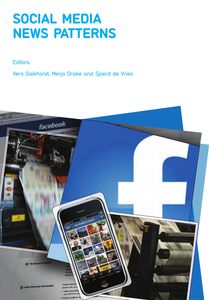This article examines two areas of tension within environmental ethics literature and relates them to the case study of the animal representation in the Dutch media. On the one hand, there is a tension between those who propagate clear division between anthropocentric and non-anthropocentric views; on the other hand, there is a tension between the land ethics perspective and animal right proponents. This article examines the media representation of animals using content analysis, and links the findings back to the areas of tension within environmental ethics. The main findings indicate that the division between anthropocentric and ecocentric perspectives is still relevant for evaluating the human-animal relations, while the convergence of the land ethics and animal rights perspectives can be helpful in explaining why this division is relevant. This is a post-peer-review, pre-copyedit version of an article published in "Environmental Processes".The final authenticated version is available online at: https://doi.org/10.1007/s40710-014-0025-7 https://www.linkedin.com/in/helenkopnina/
MULTIFILE

Wereldwijd onderzoek: Hoe gebruiken nieuwsmedia social media? Jongeren lezen geen krant meer, ze kijken op hun smartphone die ze altijd bij de hand hebben. Binnen het lectoraat social media en reputatiemanagement van NHL hogeschool te Leeuwarden heeft een groep internationale studenten in 12 landen onderzoek gedaan. Hierbij hebben ze meer dan 150 social media sites bestudeerd van nieuws media. De resultaten maken deel uit van een internationaal onderzoek van NHL Hogeschool en Haaga Helia University. De onderzoeksvraag was: Wat speelt zich af in de nieuwsmedia? Persbureaus kunnen het overzicht gebruiken om hun social media te optimaliseren. En voor ieder die journalistiek een warm hart toedraagt is het interessante informatie over de nieuwsmedia in een overgangssituatie (2nd edition)
DOCUMENT

The broad field of environmental ethics, animal welfare, animal liberation, and animal rights literature indicate that all encounters between humans and animals are ethically charged. In this article, I shall examine how environmental ethics or animal welfare/rights/liberation literature translate into public media. The case study will delve into the representation of animals in the Dutch newspapers, using content analysis to provide an empirical basis for monitoring public opinion. Assuming that attitudes to animals are influenced by media coverage, the results of this case study will be brought to bear upon the discussion of the representation of animals beyond a specific national context. LinkedIn: https://www.linkedin.com/in/helenkopnina/
DOCUMENT

Artificiële Intelligentie (AI) speelt een steeds belangrijkere rol in mediaorganisaties bij de automatische creatie, personalisatie, distributie en archivering van mediacontent. Dit gaat gepaard met vragen en bezorgdheid in de maatschappij en de mediasector zelf over verantwoord gebruik van AI. Zo zijn er zorgen over discriminatie van bepaalde groepen door bias in algoritmes, over toenemende polarisatie door de verspreiding van radicale content en desinformatie door algoritmes en over schending van privacy bij een niet transparante omgang met data. Veel mediaorganisaties worstelen met de vraag hoe ze verantwoord met AI-toepassingen om moeten gaan. Mediaorganisaties geven aan dat bestaande ethische instrumenten voor verantwoorde AI, zoals de EU “Ethics Guidelines for trustworthy AI” (European Commission, 2019) en de “AI Impact Assessment” (ECP, 2018) onvoldoende houvast bieden voor het ontwerp en de inzet van verantwoorde AI, omdat deze instrumenten niet specifiek zijn toegespitst op het mediadomein. Hierdoor worden deze ethische instrumenten nog nauwelijks toegepast in de mediasector, terwijl mediaorganisaties aangeven dat daar wel behoefte aan is. Het doel van dit project is om mediaorganisaties te ondersteunen en begeleiden bij het inbedden van verantwoorde AI in hun organisaties en bij het ontwerpen, ontwikkelen en inzetten van verantwoorde AI-toepassingen, door domeinspecifieke ethische instrumenten te ontwikkelen. Dit gebeurt aan de hand van drie praktijkcasussen die zijn aangedragen door mediaorganisaties: pluriforme aanbevelingssystemen, inclusieve spraakherkenningssystemen voor de Nederlandse taal en collaboratieve productie-ondersteuningssystemen. De ontwikkeling van de ethische instrumenten wordt uitgevoerd met een Research-through-Design aanpak met meerdere iteraties van informatie verzamelen, analyseren prototypen en testen. De beoogde resultaten van dit praktijkgerichte onderzoek zijn: 1) nieuwe kennis over het ontwerpen van verantwoorde AI in mediatoepassingen, 2) op media toegespitste ethische instrumenten, en 3) verandering in de deelnemende mediaorganisaties ten aanzien van verantwoorde AI door nauwe samenwerking met praktijkpartners in het onderzoek.
The IMPULS-2020 project DIGIREAL (BUas, 2021) aims to significantly strengthen BUAS’ Research and Development (R&D) on Digital Realities for the benefit of innovation in our sectoral industries. The project will furthermore help BUas to position itself in the emerging innovation ecosystems on Human Interaction, AI and Interactive Technologies. The pandemic has had a tremendous negative impact on BUas industrial sectors of research: Tourism, Leisure and Events, Hospitality and Facility, Built Environment and Logistics. Our partner industries are in great need of innovative responses to the crises. Data, AI combined with Interactive and Immersive Technologies (Games, VR/AR) can provide a partial solution, in line with the key-enabling technologies of the Smart Industry agenda. DIGIREAL builds upon our well-established expertise and capacity in entertainment and serious games and digital media (VR/AR). It furthermore strengthens our initial plans to venture into Data and Applied AI. Digital Realities offer great opportunities for sectoral industry research and innovation, such as experience measurement in Leisure and Hospitality, data-driven decision-making for (sustainable) tourism, geo-data simulations for Logistics and Digital Twins for Spatial Planning. Although BUas already has successful R&D projects in these areas, the synergy can and should significantly be improved. We propose a coherent one-year Impuls funded package to develop (in 2021): 1. A multi-year R&D program on Digital Realities, that leads to, 2. Strategic R&D proposals, in particular a SPRONG/sleuteltechnologie proposal; 3. Partnerships in the regional and national innovation ecosystem, in particular Mind Labs and Data Development Lab (DDL); 4. A shared Digital Realities Lab infrastructure, in particular hardware/software/peopleware for Augmented and Mixed Reality; 5. Leadership, support and operational capacity to achieve and support the above. The proposal presents a work program and management structure, with external partners in an advisory role.
Steeds meer organisaties vinden het belangrijk om ‘ethisch verantwoorde’ AI-toepassingen te ontwikkelen. Maar wat is precies ethisch verantwoord? En hoe ontwerp je AI-systemen die aan ethische richtlijnen voldoen? In dit coöperatieve spel ontwerp je samen, op basis van de ethische principes opgesteld door de EU, ethisch verantwoorde AI-toepassingen.